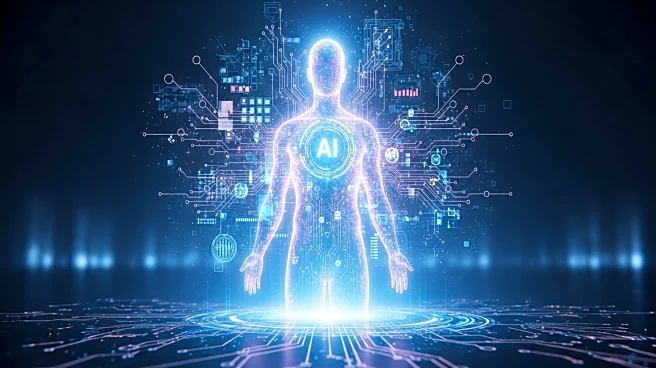What's Happening?
The rapid advancement of artificial intelligence (AI) is reshaping the workforce, prompting organizations to consider reskilling or upskilling employees to remain competitive. Despite the rhetoric emphasizing the importance of reskilling, many companies are opting to hire externally for AI-ready talent, leading to significant layoffs. Notable examples include Accenture, Chegg, Autodesk, and Salesforce, which have all reduced their workforce while simultaneously recruiting for AI-centric roles. This trend highlights a contradiction between the proclaimed value of reskilling and the reality of workforce replacement. The article underscores the challenges organizations face in balancing the need for technological advancement with the retention of institutional knowledge and employee loyalty.
Why It's Important?
The shift towards AI-driven operations has significant implications for the U.S. workforce and economy. Companies that prioritize external hiring over internal reskilling risk losing valuable institutional knowledge and employee trust. This approach may lead to a fractured workforce and a weaker organizational culture. Moreover, the reduction in learning and development budgets suggests a lack of commitment to genuine reskilling efforts, potentially widening the skills gap. As AI continues to transform industries, the ability to effectively integrate technology with human capital will be crucial for sustainable growth and competitive advantage. Organizations that fail to invest in their workforce may struggle to adapt to long-term technological demands.
What's Next?
For companies to thrive in the AI era, they must integrate reskilling into their transformation strategies from the outset. This involves creating ongoing learning opportunities, such as mentorship and rotational programs, to support employee development. Organizations should also focus on leveraging existing employee skills and knowledge, pairing them with AI fluency to enhance productivity. Protecting budgets for learning and development is essential to signal a commitment to growth and transformation. As regulatory requirements and market demands evolve, companies that prioritize their workforce will be better positioned to navigate the challenges and opportunities presented by AI.
Beyond the Headlines
The ethical implications of workforce replacement in favor of AI-ready talent raise questions about corporate responsibility and the social contract between employers and employees. The trend towards external hiring may exacerbate economic inequality and job insecurity, particularly for workers in AI-exposed fields. Additionally, the cultural impact of a diminished focus on employee development could lead to decreased morale and engagement. As AI continues to redefine work, organizations must balance technological innovation with a commitment to their workforce to ensure equitable and sustainable progress.









